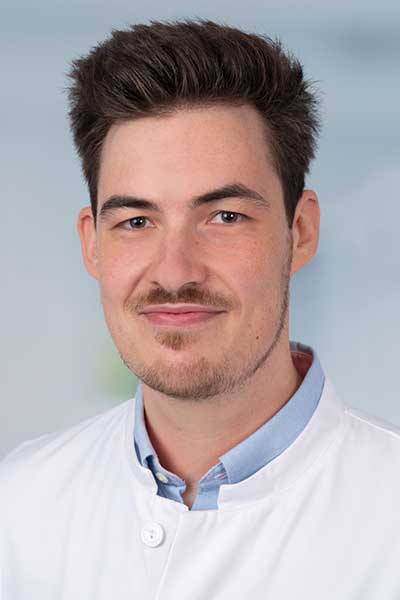
Poster Presenter: Claus Juergen Bauer, MD, Clinic of Internal Medicine III, Department of Rheumatology and Clinical Immunology, University Hospital Bonn, Germany
Poster Title: Exploring the Limit of Image Resolution for Human Expert Classification of Vascular Ultrasound Images in Giant Cell Arteritis and Healthy Subjects: The GCA-US-AI Project
Poster Session C: Tuesday, Nov. 14
What is your poster about?
“With this study, we investigated the minimum resolution level that is needed for reliable vascular ultrasound image classification in giant cell arteritis (GCA) and healthy subjects. Forty-two international experts from the Outcome Measures in Rheumatology (OMERACT) subgroup on ultrasound in large vessel vasculitis participated in a blinded classification task of 250 vessel ultrasound images at five different image resolutions (starting from 32×32 pixels and ending with 512×512 pixels).
“Ultimately, we confirmed that with increasing image resolution, the proficiency of human experts in GCA ultrasound improves, enabling more confident and accurate classification of vascular ultrasound images. However, most importantly, we found that above an image resolution of 224×224 pixels, classification performance no longer rises substantially, thereby defining the minimum image resolution necessary for optimal human vascular ultrasound image classification in GCA and healthy subjects.
“These results are fundamental to groundbreaking reductions of computational power requirements in the development of an artificial intelligence (AI)-based assistance for ultrasound image classification and open up a variety of perspectives in neural network architecture selection.”
Why did you decide to investigate this topic?
“The topic of this study precedes the development of an AI-based assistance for ultrasound image classification in the detection of GCA. GCA is the most common form of vasculitis in adults, necessitating prompt diagnosis to prevent severe complications. Ultrasound-driven diagnosis can be fast and effective; however, access to expert GCA ultrasonography is often limited to larger medical centers. We are convinced that the development of an AI-based assistance for ultrasound image classification could bridge this gap and pave the way for substantial improvements of future comprehensive patient care.”
What are you working on next related to this research?
“Based on the learnings of this study, the development of an AI-based assistance for ultrasound image classification in the detection of giant cell arteritis (as main core of the GCA-US-AI Project) has just begun. We have already compiled a substantial image dataset for neural network training and cannot wait to share the first performance results of this artificial intelligence.”
“Seeing a scientific idea grow and develop its potential to shape the future of comprehensive patient care, as is the case in this GCA-US-AI Project, is of unparalleled reward.”
Claus Juergen Bauer, MD
What excites you most about your work?
“Our scientific work in the field of rheumatology is characterized by particularly innovative strength, and it is precisely the implementation of many fascinating ideas on the pulse of time that excites me the most. It fulfills me to meet patients every day in our rheumatology outpatient clinic who we are already helping today, but whose future care we can significantly improve even further. Seeing a scientific idea grow and develop its potential to shape the future of comprehensive patient care, as is the case in this GCA-US-AI Project, is of unparalleled reward.”
What are you most looking forward to at ACR Convergence 2023 in San Diego?
“My endeavors have always been strongly driven by the vision of establishing networks that transcend geographical boundaries, connect multinational people and perspectives, and allow for international interaction and collaboration. To me, ACR Convergence 2023 is a unique global platform to share experience, connect with international leaders, and promote research networking. In this spirit, I am highly looking forward to meet, connect, discuss, and share scientific knowledge with colleagues and rheumatology advocates from all over the world at ACR Convergence 2023 in San Diego!”
Register Today for ACR Convergence 2024

If you haven’t registered for ACR Convergence 2024, register today to participate in this year’s premier rheumatology experience, November 14–19 in Washington, D.C. All registered participants receive on-demand access to scientific sessions after the meeting through October 31, 2025
